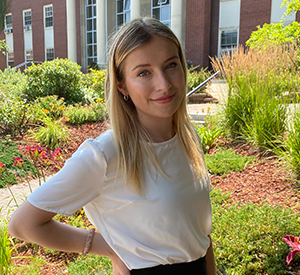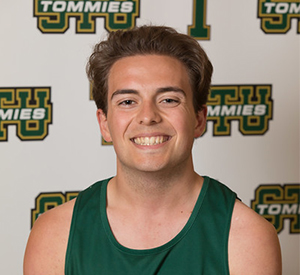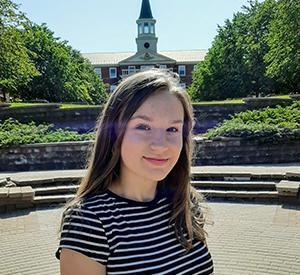2025-2026 Course Offerings
First Semester
- Courses start September 3, 2025 and end December 9, 2025.
- Exams take place from December 11 through December 18, 2025.
Courses offered in the Early Start Credit program are asynchronous, online options, meaning that students can work away at the course material at times convenient to them throughout the week.
Semester 1 (September to December)
COPP 1013: Introduction to Communications
This course introduces students to the history and evolution of the communications profession, with particular emphasis on communications in the public policy sphere, from the pioneers who sold ideas on behalf of their clients, to the modern world of two-way communications with the public through the internet and social media tools. The course will explore how this evolution is changing the way governments, politicians, non-governmental organizations, citizens groups and corporations interact with the public.
GERO 1023: Aging in Canada
This course examines the experiences of growing older in Canada. This includes a review of Canada's healthcare, pension systems and other social structures and policies which directly impact older adults in Canadian society.
NATI 1006: Introduction to Native Studies
The course will examine precontact history; the influences of colonialism and primitive accumulation/capitalism in the postcontact era; and contemporary issues - while emphasizing a historical and materialist perspective. Please note that this is a full-year course, meaning students must be registered in it and complete coursework for it throughout both the fall and winter semesters in order to receive credit.
PHIL 1013: What is Philosophy? (Historical Introduction I)
To do philosophy is to reflect critically on our underlying beliefs (e.g., about reality, knowledge, freedom, responsibility) and to modify whatever doesn't stand up to scrutiny. Whether we realize it or not, the very way we think is shaped by past thinkers -- which is why studying philosophy's history is a crucial part of doing philosophy. In this course, we will focus on Ancient and Medieval thinkers as we strive to evaluate our views critically.
PSYC 1013: Introduction to Psychology I
This course will introduce a variety of topics within psychology. Topics to be covered include research methods, history of psychology, brain and behaviour, sensation and perception, learning, memory, and cognition.
Second Semester
- Courses start January 6, 2026 and end April 13, 2026.
- Exams take place from April 15, 2026 through April 23, 2026.
Courses offered in the Early Start Credit program are asynchronous, online options, meaning that students can work away at the course material at times convenient to them throughout the week.
Semester 2 (January to April)
ANTH 1013: Introduction to Cultural Anthropology
This is an introduction to the study of contemporary cultures and languages and to the methods of ethnographic fieldwork.
ECON 1013: Introduction to Economics (Micro)
This course examines the behaviour of consumers and producers in a market economy. Among the issues discussed will be environmental protection, wealth and poverty, and the extent of corporate power.
HMRT 1003: Introduction to Human Rights
This course introduces students to the study of human rights by investigating the question What are human rights? The course will proceed primarily through a number of examples and case studies. Students will also be given an overview of the basic instruments, institutions, and ideas relevant to human rights.
PHIL 1023: What is Philosophy? (Historical Introduction II)
To do philosophy is to reflect critically on our underlying beliefs (e.g., about reality, knowledge, freedom, responsibility) and to modify whatever doesn't stand up to scrutiny. Whether we realize it or not, the very way we think is shaped by past thinkers -- which is why studying philosophy's history is a crucial part of doing philosophy. In this course, we will focus on Modern and Contemporary thinkers as we strive to evaluate our views critically. This course has no prerequisite.
PSYC 1023: Introduction to Psychology II
This course introduces a variety of topics within psychology. Topics to be covered include research methods, developmental psychology, intelligence and creativity, personality, abnormal behaviour and therapy, social psychology, and applied topics. This course has no prerequisite.
-(2).jpg)
 “Choosing to take two university classes while in 12th grade was undoubtedly the best decision I made while in high school. It allowed me to have a gradual transition into my post-secondary studies, begin to forge connections with professors, and explore disciplines I am passionate about.”
“Choosing to take two university classes while in 12th grade was undoubtedly the best decision I made while in high school. It allowed me to have a gradual transition into my post-secondary studies, begin to forge connections with professors, and explore disciplines I am passionate about.” 
 “It was a great experience that helped me get a first taste of what to expect when I attend university. It also helped me clarify my interest in economics - if I would not have taken the introductory course, I probably would not be studying this discipline. Ultimately, it gave me an opportunity to take on a new challenge from which I have learned a lot and that I am still grateful for today. I highly recommend taking part in it; you will not regret it.”
“It was a great experience that helped me get a first taste of what to expect when I attend university. It also helped me clarify my interest in economics - if I would not have taken the introductory course, I probably would not be studying this discipline. Ultimately, it gave me an opportunity to take on a new challenge from which I have learned a lot and that I am still grateful for today. I highly recommend taking part in it; you will not regret it.”  “Taking a university course in high school prepared me for my future university career, and it led me to fall in love with the small, yet beautiful, St. Thomas University. I learned so much about the subject area and myself! I took an introduction to gerontology course in my final year of high school. Now, I am majoring in gerontology and am the President of the Gerontology Society! Every decision you make opens up a world of possibilities; that is why taking the course was one of the best decisions I have made.”
“Taking a university course in high school prepared me for my future university career, and it led me to fall in love with the small, yet beautiful, St. Thomas University. I learned so much about the subject area and myself! I took an introduction to gerontology course in my final year of high school. Now, I am majoring in gerontology and am the President of the Gerontology Society! Every decision you make opens up a world of possibilities; that is why taking the course was one of the best decisions I have made.”